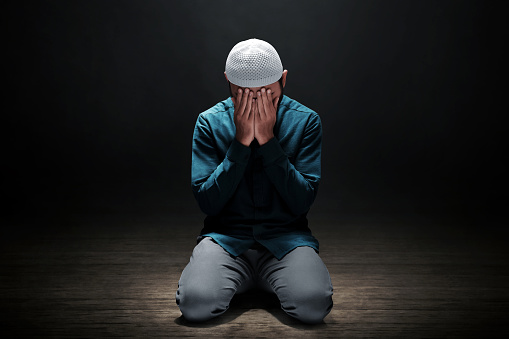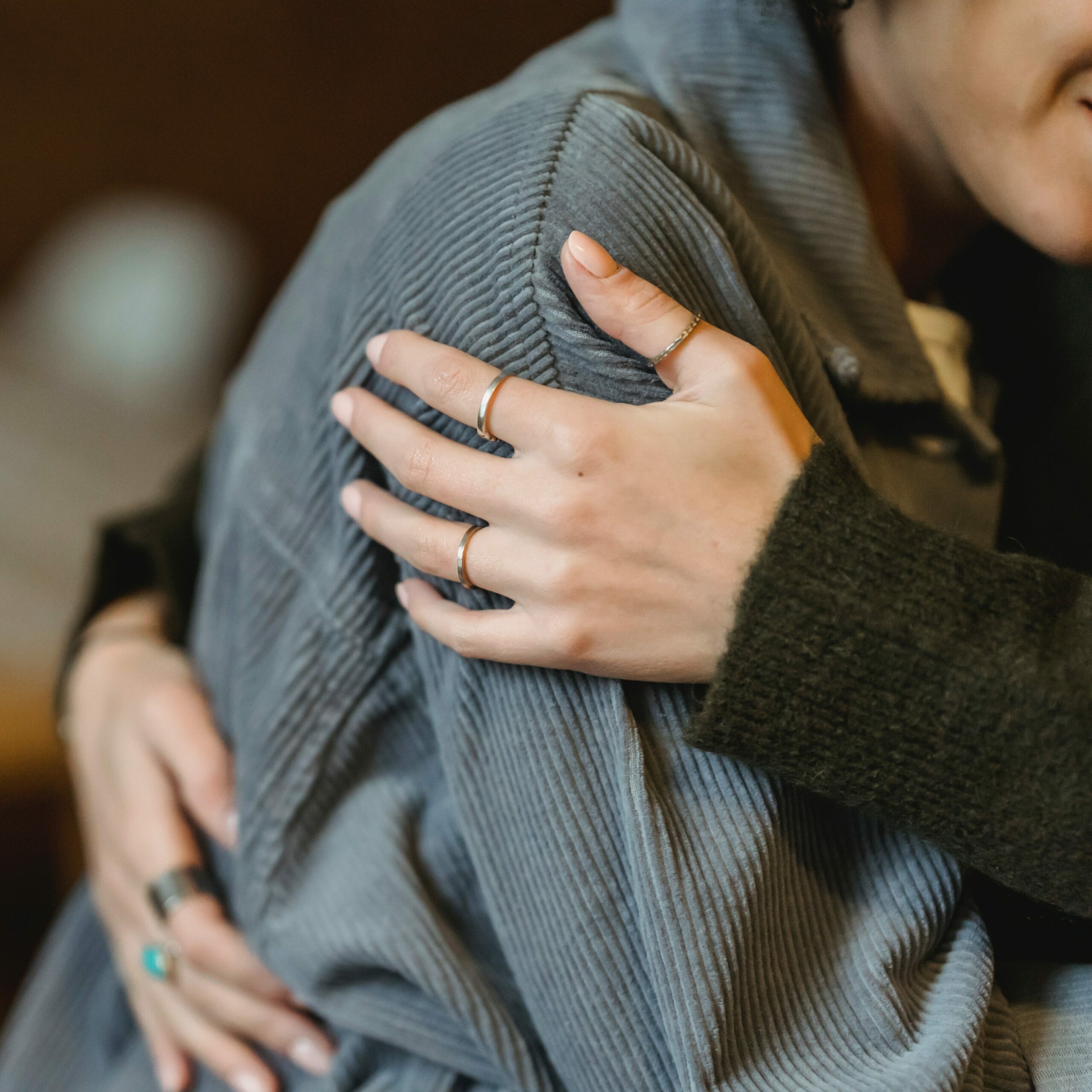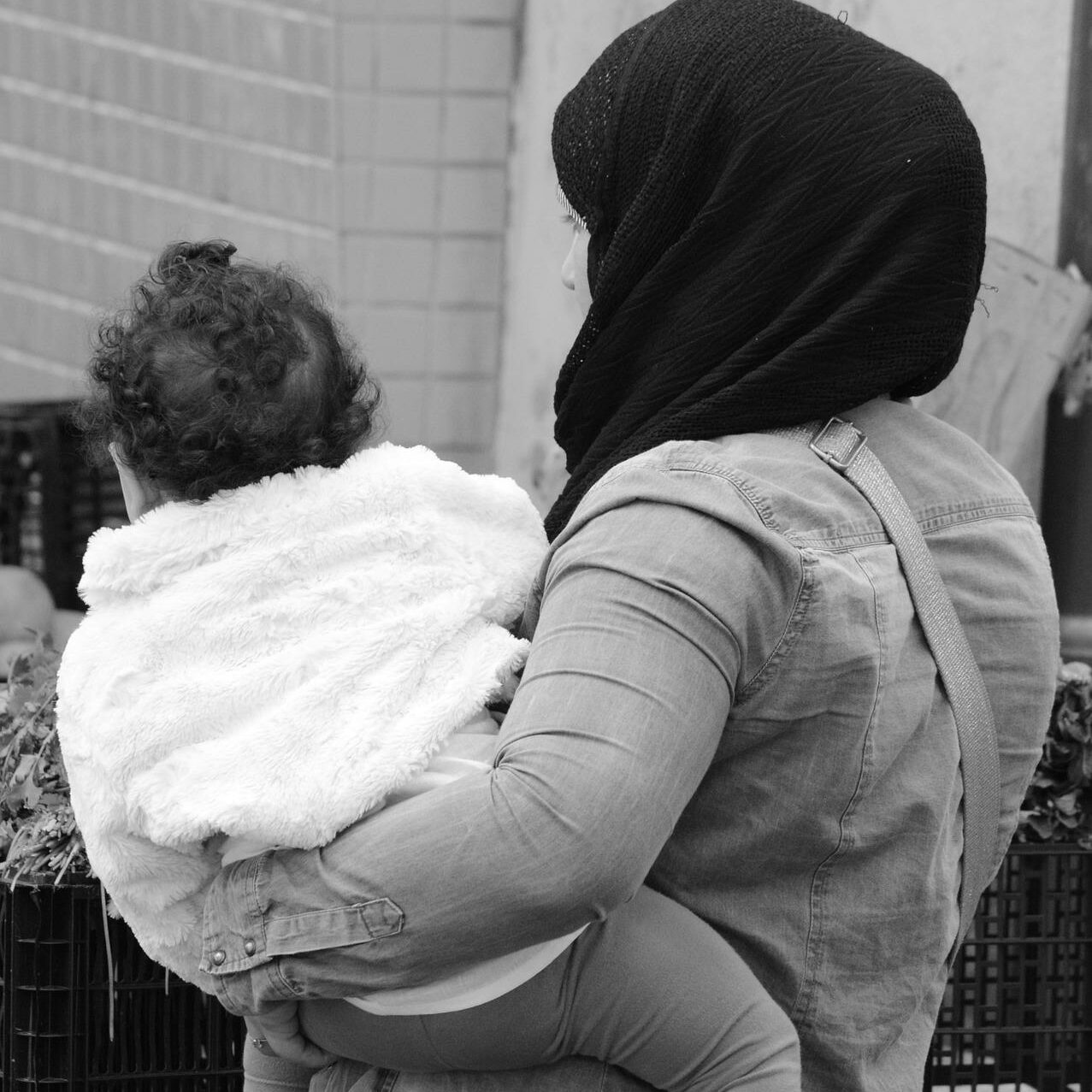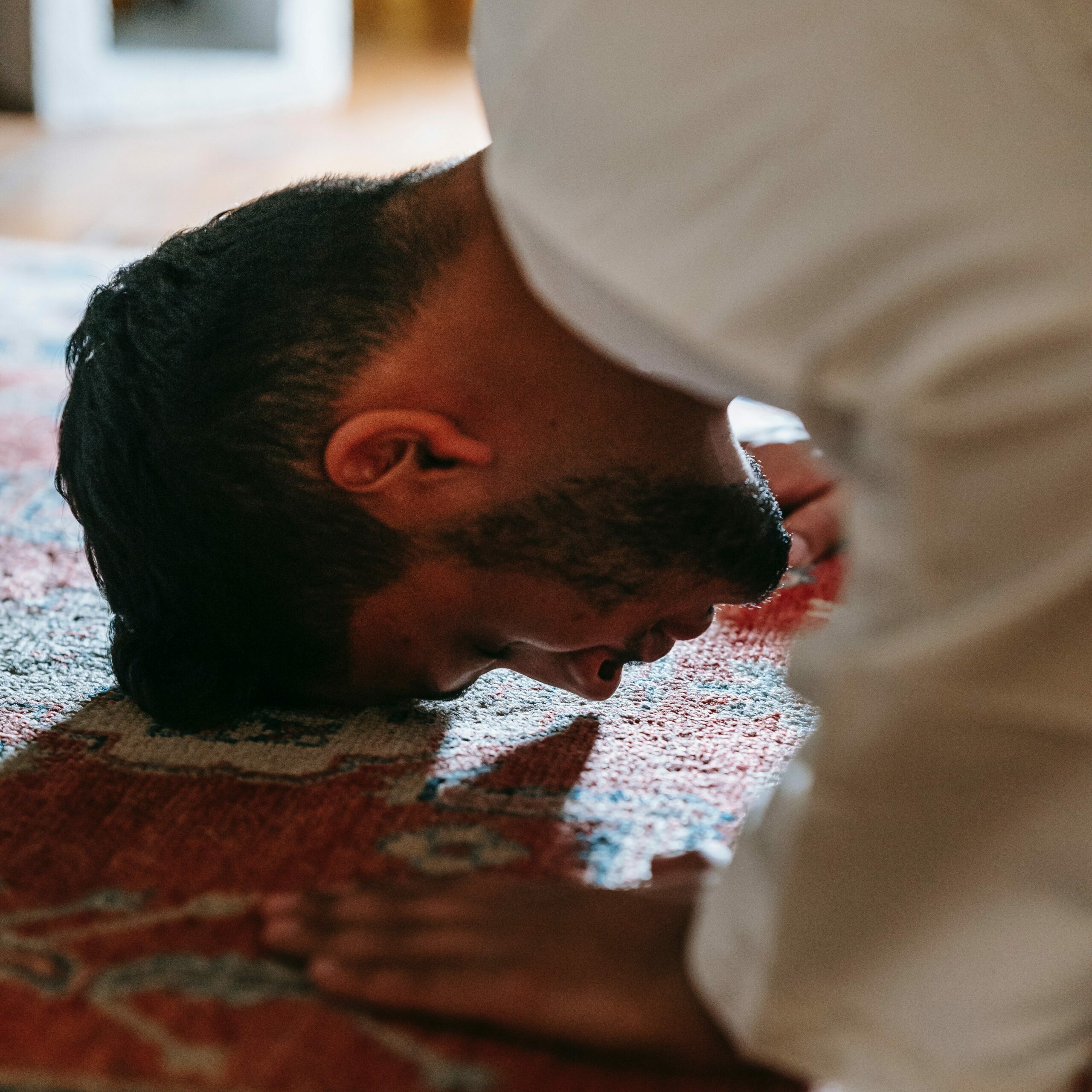An Islamic Perspective on Grief
National Grief Awareness Week runs between the 2nd– 7th of December 2022. It raises awareness to grief and loss on a national scale.
Grief comes in waves; for some, it arrives unexpectedly, like an uninvited guest on your doorstep. For others, it is familiar, a comforting lull in the background, a presence you have grown accustomed to.
It can hibernate for weeks, months and years, and then rise fiercely on any given afternoon. It could be a smell, a dish, a photo or a laugh that takes you right back, to that moment, to a time where they were still with you. Your heart aches, and you wonder whether this feeling will ever pass.
They say time heals, and it surely does. That doesn’t mean that one given day, you will wake up and feel brand new, be restored to factory settings as though nothing ever happened. But things will get easier. It differs for everyone – it may be after 90 days or 300 – but one morning, you will wake up and the ache will still be there, but it will be quieter. It won’t be all consuming.

You will laugh again, smile from ear-to-ear at a joke a friend told, you will enjoy that cup of coffee whole heartedly. You won’t stop remembering them; they will always be a part of you. You will find pockets of them in your everyday life, be it something they said or did.
The beauty of Islam is that we believe that we will be reunited with them. They have returned to their Lord, and we seek comfort in the knowledge that death is inevitable, that it is pre-ordained and that the worldly life is temporary.
“Every soul will taste death, and you will only be given your [full] compensation on the Day of Resurrection. So he who is drawn away from the Fire and admitted to Paradise has attained [his desire]. And what is the life of this world except the enjoyment of delusion.” (3:185)
The death of a loved one, and the loss you feel, shakes you the core. It reminds you of the fragility of life, and gives you an insight into what truly matters. In that moment, you would do anything to have a single moment with your loved one, and the one who has passed would beg for a single moment on this earth. But nothing can be done, their soul has departed this world, and Allah is in control of the heavens and the earth.
You can be sad
Even though as Muslims, we know the worldly life is fleeting, and we should live here as travelers, it doesn’t take away from our own humanity. We are humans, and we will feel, mourn, miss and cry. We are created this way, to feel sadness, fear, and grief. The greatest man on this earth (saw) suffered immense loss throughout his life. In the ‘Year of Sorrow’ the Prophet (saw) lost his wife and uncle – those most beloved to him and whom he depended upon most amongst the creation – in a 40-day span.
The Prophet (saw) cried when he lost his infant son, Ibrahim. Ibrahim was in his last breaths and the eyes of Allah’s Messenger (saw) started shedding tears. Abdur Rahman bin ‘Awf (ra) said, “O Allah’s Messenger (SAW), even you are weeping!”
He (saw) said, “O Ibn ‘Awf, this is mercy”. Then he (saw) wept more and said, “The eyes are shedding tears and the heart is grieved, and we will not say except what pleases our Lord. O Ibrahim! Indeed, we are grieved by your separation”. [Bukhari]

As you can see the Prophet (saw) wept when he suffered loss. He too felt the pain and sorrow of losing a loved one, yet he did not say anything that was displeasing to Allah. When you lose a loved one, you are in a moment of shock and confusion, but remind yourself not to decree the question of Allah. This doesn’t take away from your loss or your ability to grieve, but He knows what you don’t know, and He shall never burden a soul more than he can bear. This should give us comfort, that He would never leave us to bear such a trial alone. He is closer to us than our jugular vein and is All-Knowing and All-Seeing. He is aware of every tear we shed, every supplication we make, and the hurt our heart carries.
Don’t be alone
When you are grieving, you may not want to be around people. You want to be left alone, to sleep the days away, and cocoon until the pain subsides. But when you alone, you will dwell further on your feelings, and being around someone can help ease your sadness, and distract you momentarily from your grief.
Aim to surround yourself with family, or friends that will comfort and uplift you. If you feel overwhelmed take it in baby steps, and arrange to spend time with someone for an hour or two, even within your own home. This will help break up your day and give you something to look forward to.
The Prophet (saw) visited Sa’d bin ‘Ubadah during his illness. He was accompanied by ‘Abdur-Rahman bin ‘Awf, Sa’d bin Abu Waqqas and ‘Abdullah bin Mas’ud (ra).
The Prophet (saw) began to weep. When his companions saw this, their tears also started flowing. He said, “Do you not hear, Allah does not punish for the shedding of tears or the grief of the heart, but punishes or bestows mercy for the utterances of this (and he pointed to his tongue).” (Riyadh as-Salihin)

If you remain alone for long periods time, you may open the door to doubt, and questioning. It is important to remind yourself of the qadr of Allah, and in His infinite Mercy and Compassion towards His creation.
The Prophet (saw) said: ‘The strong believer is better and more beloved to Allah than the weak believer, although both are good. Strive for that which will benefit you, seek the help of Allah, and do not feel helpless. If anything befalls you, do not say, “if only I had done such and such” rather say “Qaddara Allahu wa ma sha’a fa’ala (Allah has decreed and whatever he wills, He does).” For (saying) ‘If’ opens (the door) to the deeds of Satan.’” (Ibn Majah)
Benefit those who have passed
It’s a blessing to be able to benefit those who have passed. You can seek comfort knowing that your actions are being delivered to them. Even if you can touch them physically, you able to embrace them with your sadaqah and supplication.
The Prophet (saw) said: “When a person dies, all his deeds come to an end except three:
- Sadaqah jaariyah (ongoing charity, e.g. endowment)
- Beneficial knowledge (which he has left behind and others benefit from it)
- A righteous child who will pray for him.” (at-Tirmidhi)
If your loved one has passed on knowledge to you which is beneficial, or has even been a role-model in terms of character for you, and you act upon that knowledge or embody their good character then they will benefit from that. If you have lost a parent, and you as their child continue to adhere to the teachings of Islam they have embedded, or gain inspiration from their actions then they will receive on going reward.

You can give sadaqah jariyah on their behalf, so that they can reap ongoing rewards even whilst being departed from this world.
Aa’ishah (ra) reported that a man said to the Prophet (saw) “My mother has passed away, and if she could have spoken, she would have given something in charity. Will she receive a reward if I give something on her behalf?” He said, “Yes.” (Bukhari)
You can also supplicate for them, which could include praying that they are forgiven and that they reach the highest Jannah without account. Other actions that can be done on a deceased person’s behalf would be Umrah, and Hajj also.
The Prophet (saw) said: “A man’s status will be raised in Paradise and he will ask, ‘How did I get here?’ He will be told, ‘By your son’s du’a’s (prayers) for forgiveness for you.” (Ibn Majah)
Those left behind
Among those left behind, widows and orphans are among them. Their plight pulls at our heart-strings as dealing with death is heartbreaking at any stage of life, but losing a loved one when your young can have a dramatic impact on the rest of your life. Losing your husband, whom you have shared a life with, a family with and whom you looked forward to growing old with, can make many feel life is unbearable. That is why the reward for taking care of widows and orphans is so great.
The Prophet (saw) said: “One who cares for widows and the poor is like those who fight in the way of Allah or those who spend their days fasting and their nights praying.” (Bukhari)
The wife and daughter of Faraj Hassan al-Sa’di knew the feeling of loss all too well. He along his family endured great pain and distress over his detention without trial or charges, and battled to live a normal life over the course of seven years.
It was Faraj who took the initiative at the time he was in prison to contact HHUGS to seek help for himself and his family, a lifeline given to him by Allah.
HHUGS was able to assist Faraj and his family in several ways such as offering transportation for shopping visits, to help pay for everyday living costs, paying for his sports course to get him back into work.
On the morning of 16th August 2010, on route fulfilling a favour for a friend, Faraj was tragically killed in a motorcycle accident in Harrow, North-West London.
Even after his death, HHUGS continued to offer his family emotional and financial support. HHUGS’ emotional support clearly meant a great deal to Faraj. In his final days, while speaking at HHUGS fundraising dinner in Birmingham, he implored others to keep our work going:
“So make sure you think about these families that need support from HHUGS. Support them because HHUGS really have done a lot for me and my family. I have to encourage brothers and sisters to help other families. There are sisters and their children who are currently in need of your help.”
There are families this Winter who are struggling like his were, over a decade ago, dealing with loss, and the added stress of financial hardship. The grief they have experienced due to the detention of a family member, is now compounded by the passing of a loved one – a father, a son, a child. This is especially trying, during the Winter months, when the cost of heating, and living increases, when food does not stretch as far, and lights don’t stay on for long enough – no one is going to walk through the door to save them, and things aren’t going to get any easier. You can lift their burdens during a difficult time.
You will get through this
You may be reading this having suffered loss recently; it may have been a while, or perhaps you have not yet experienced a great loss in your life. One thing for certain is that, “So, surely with hardship comes ease.” (Qur’an, 94:5)
The journey of grief is not linear; it comes and breaks your world in half and then disappears without a trace. You are rocked, stranded and stuck all at the same time, and you, in all your strength and will are getting through this. Even if you are struggling with every iota of your being to get through the day, know that Allah is near. Turn to him, and pour out your heart to Him.

May Allah make it a journey for you that gets easier. May He grant you and your loved ones the patience to persevere, to use the grief as an opportunity to grow closer to Him, and serve as a reminder of the fleeting nature of this world. May He grant the deceased Jannah without account, and that you be reunited in the heavens. Ameen.
Seek help
If you are struggling to deal with grief, then you can reach out for support. You can contact a support organisation such as Cruse Bereavement Care or call: 0808 808 1677
If you would like to speak to a Muslim Bereavement Service, then contact Sakoon. An Islamic counselor can help you process your dealings with loss, and provide an Islamic perspective on death. You can find a number of Muslim therapists who help you work through your bereavement here
The Muslim Bereavement Support Service is a registered charity, founded in 2012. They are a non-profit organization serving the Muslim community by supporting bereaved mothers who have lost a child at any stage. They also work with other organizations, the NHS and hospices to give a spiritual context to the bereavement support services they offer. Their confidential service is provided by trained volunteers. They offer face-to-face and telephone support in multiple languages and supporting literature. You can contact them at: 0800 211 8569 or email at [email protected].
Children of Jannah offer a range of specialist bereavement support services designed to help bereaved parents cope with their grief. Visit their website for more information here.
You can also talk to friends and family about how you are feeling, or even talk to others who are going through similar situations. You can consider peer support, where people use their experiences to help each other. Find out more about peer support on the Mind website.